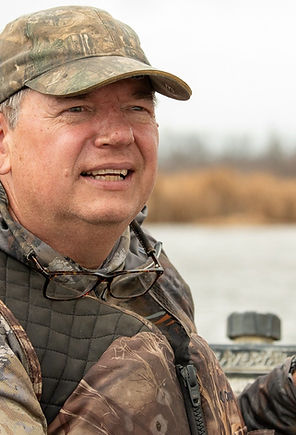Recommended Reading

.png)


We protect the things we love.
Jim Colbert doesn’t just love nature; he argues that close contact with the environment deepens a sense of care and conservation.
His memoir, In Your Nature, rings with childhood nostalgia: a first fish, a box turtle found in the woods, and a garter snake that ended up in a laundry basket. From Iowa’s most loved natives, like white-tailed deer and morel mushrooms, to its least understood counterparts, like cecropia moths and lichen, Colbert weaves an enchanting love-of-land tale.
His self-deprecating anecdotes are laugh out loud funny and relatable for anyone who has spent time tromping around in the woods. After an irksome encounter with wood nettle, he reflects, “Ignorance can be bliss, but ignorance can also be blisters.”
An avid hunter and fisherman, Colbert draws connections between conservation and his favorite hobbies. Those who live close to the land—finding, catching, or harvesting their own food—move through the world as nature intended. He says, “It’s a powerful, and emotional, thing to see first-hand where the meat on your dinner plate comes from.” Seeing the living animal changes one’s sense of responsibility.
Born and raised in Cedar Rapids, Iowa, the author, a retired Iowa State University biology professor, has a passion for connecting others to nature that shines as he shares stories of field adventures with students, enticing them to put their hands on the same reptiles that beckoned him in his youth.
Colbert hooks the reader with that first fish and keeps us on the line until the final pages, calling us to deepen our own connections to nature, to notice and learn from the natural world, and to protect it for future generations—because we protect the things we love.
With the permission of the author and Hog Press, a chapter of In Your Nature is available on our website for readers to sample: "Field Notes From the Road Not Taken."

In Prairie Up: An Introduction to Natural Garden Design, author and garden designer Benjamin Vogt challenges us to rethink what beauty means in our outdoor spaces. Instead of treating our yards and gardens as static displays, where non-native plants are herded into compliance for curb appeal, Vogt urges us to rewild. His message is simple but profound: “Bring the prairie home.” By designing with native species, we create living, resilient landscapes where biodiversity comes first.
Vogt offers practical, detailed guidance for planning, planting, and managing native gardens—including strategies for addressing HOA concerns. Illustrated with images that capture the breathtaking beauty of these wild landscapes, the book demonstrates just how much can unfold when we release strict control and allow prairies to show us another way.
Ultimately, Prairie Up is both a philosophy and a call to action. We have a choice: to see the land we inhabit as something to subdue, or as something to care for with humility and compassion. Vogt empowers us to choose stewardship, to love the ecosystem we live in, and to rediscover our place within it.

Tina Welling’s Writing Wild: Forming a Creative Partnership with Nature explores how deep engagement with the natural world can fuel creativity and self-discovery. Welling’s central message is that creativity is rooted in our relationship with nature; she asserts that “everything we know about creating, we know intuitively from the natural world.” Writing Wild offers a compelling framework for reconnecting with the land. Welling’s approach aligns with the goals of Iowa’s conservation leaders, who emphasize the importance of fostering a deeper connection between people and the natural world to encourage responsible stewardship. Her book suggests that by paying close attention to the ordinary and wondrous aspects of nature—whether that’s a dew-beaded spiderweb or the prairie wind—individuals can not only enrich their creative lives but also cultivate a sense of responsibility and care for the environment.

In The Serviceberry: Abundance and Reciprocity in the Natural World, Robin Wall Kimmerer draws on her Potawatomi heritage, scientific expertise, and lyrical storytelling to reimagine our relationship with the environment and each other. Using the serviceberry tree as a central metaphor, Kimmerer explores the concept of a “gift economy”—a system rooted in reciprocity, gratitude, and the sharing of abundance, as modeled by the natural world. She contrasts this with the prevailing economic paradigm of scarcity and competition, arguing that nature’s systems, exemplified by the serviceberry’s generous distribution of fruit to birds, insects, and humans, offer a blueprint for more sustainable and equitable human societies.

Douglas Tallamy, professor of entomology and ecology at the University of Delaware and author of Nature's Best Hope, puts the onus on all of us to act now for the survival of life on planet Earth. What we are doing in our parks and preserves is not enough, as evidenced by continued species loss. He provides practical tips for reestablishing natural landscapes in our privately owned and rented spaces. It's all hands on deck, and Tallamy makes it clear what we can do to ensure there is hope for generations to come. Tallamy calls our time the “Age of Ecological Enlightenment” and says, “We are on the cusp of a new environmental ethic.” According to Tallamy, this ethic “is the only option left for Homo sapiens if we want to remain viable in the future.”